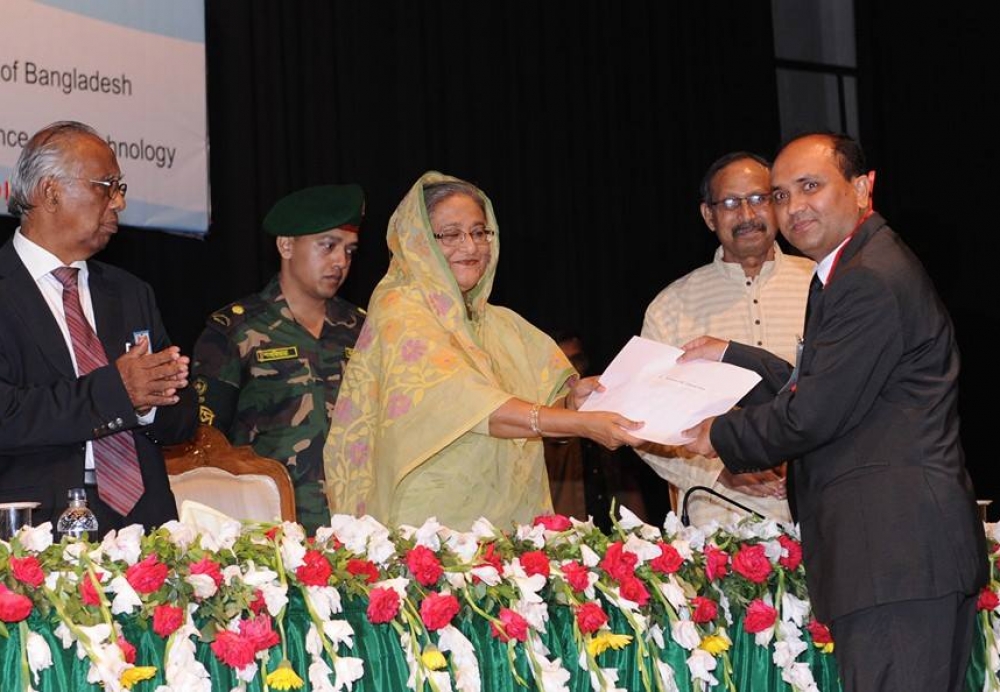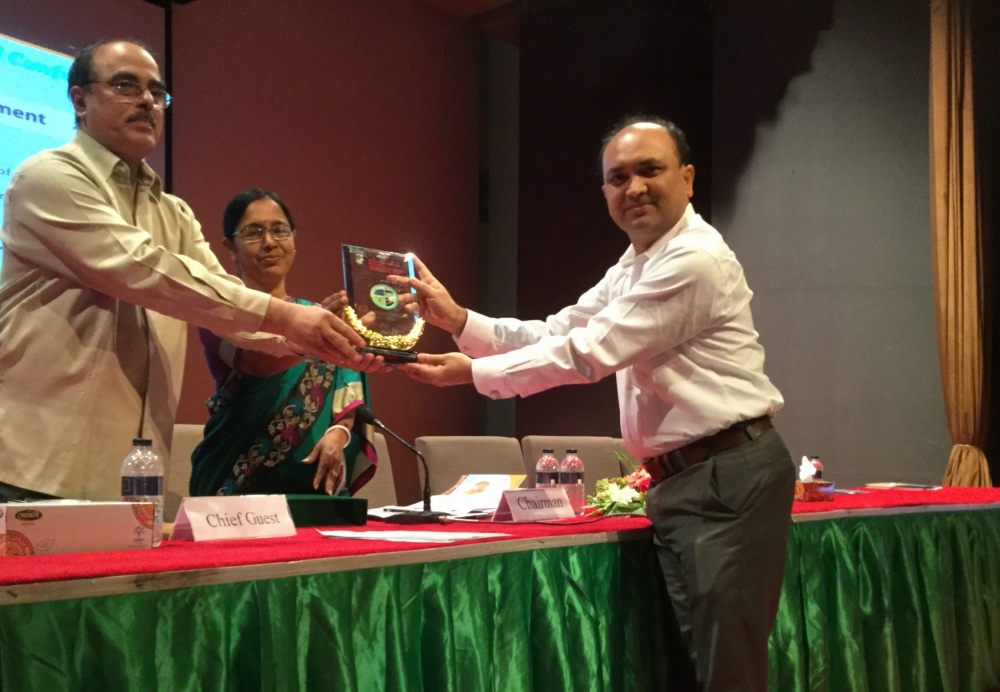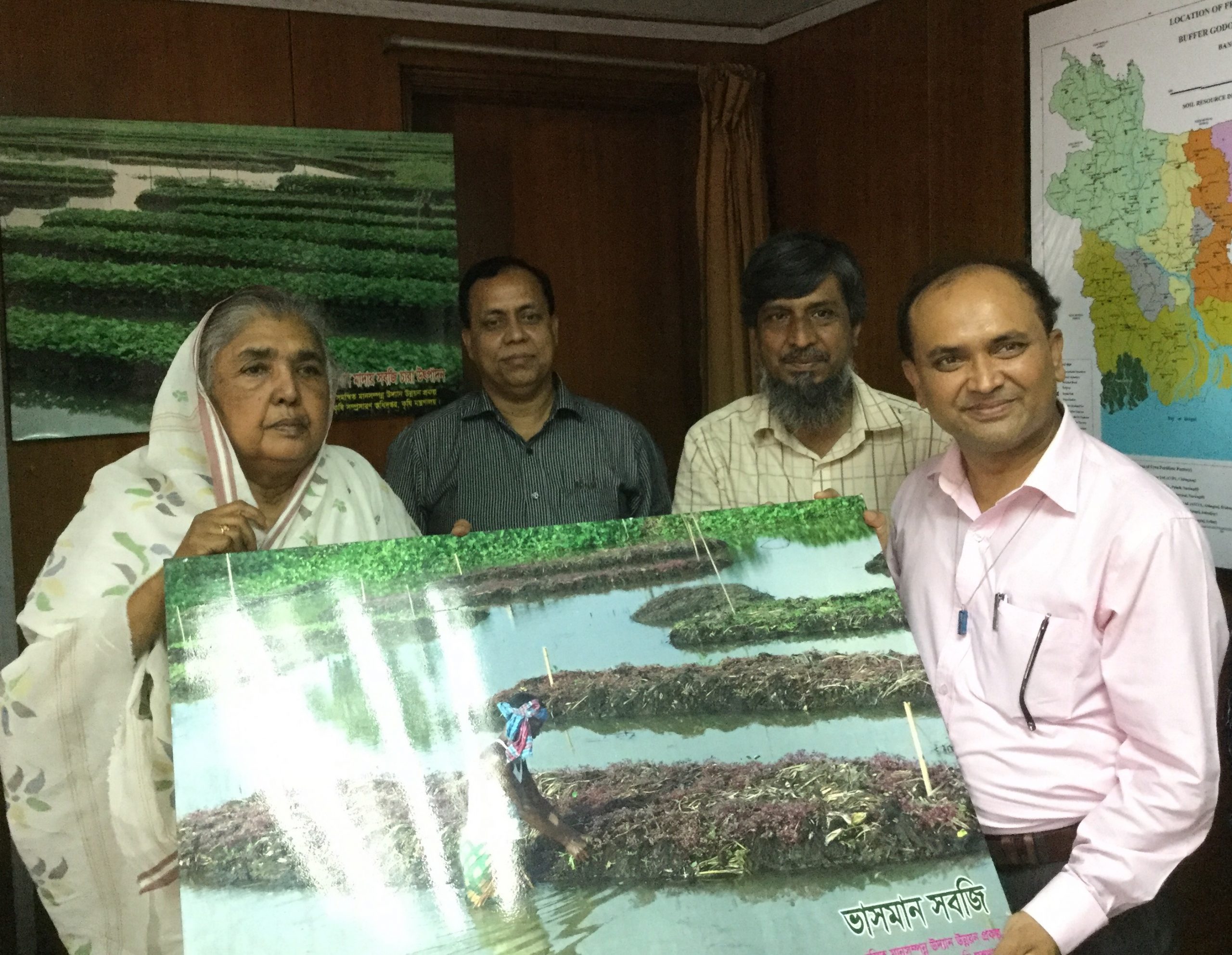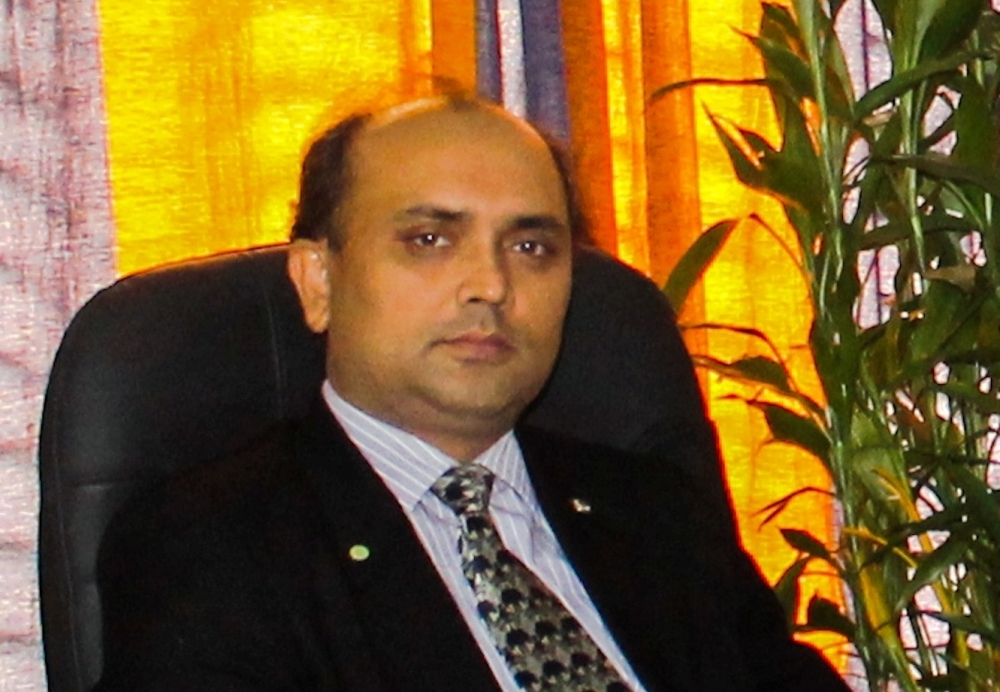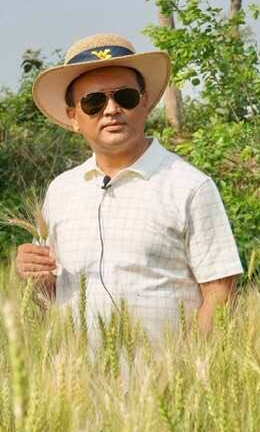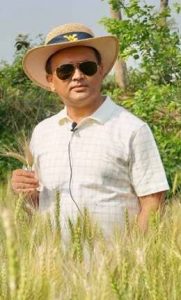Dr. Md Tofazzal Islam, FBAS, FTWAS, FAPS
Professor and Founding Director
Institute of Biotechnology and Genetic Engineering (IBGE)
Fellow of the Fulbright, Commonwealth, JSPS and Alexander von Humboldt Foundation
Bangabandhu Sheikh Mujibur Rahman Agricultural University, Gazipur-1706,BANGLADESH
Tel. +88-02-9205310-14 Extn. 2252
Fax: +88-02-9205333
Cell: +88-0171-4001414
Website: https://ibge.bsmrau.edu.bd
https://www.researchgate.net/profile/Tofazzal_Islam
http://orcid.org/0000-0002-7613-0261
https://en.wikipedia.org/wiki/Md._Tofazzal_Islam
https://scholar.google.com/citations?user=kfsgZf0AAAAJ&hl=en
Areas of Specialization: Genomics and Genome Editing; Molecular Plant-Pathogen Interactions; Biotechnology; and Molecular Diagnosis of Fungal Phytopathogen
Research Foci: (i) Mitigation of wheat blast using frontier technologies including CRISPR-Cas; (ii) Point-of-care detection of agriculturally important diseases; and (iii) genomics and metagenomics analyses of terrestrial and marine organisms for their application in biotechnology and bioprospecting.
Resume (Please click here for brief resume in Bangla)
Dr. Md Tofazzal Islam is a Professor and founding Director of Institute of Biotechnology and Genetic Engineering (IBGE) of Bangabandhu Sheikh Mujibur Rahman Agricultural University (BSMRAU), Bangladesh.
Tofazzal Islam obtained B Sc Ag (Hon) and M Sc (Ag) degrees from the Bangladesh Agricultural University (BAU), securing the First Position in the First Class in both cases in order of merit. He went to Japan as a Japanese government scholar and did MS (1999) and Ph.D. (2002) at Hokkaido University with distinction. Dr. Islam did Post-doc as an Alexander von Humboldt fellow (2007-2009) at the University of Goettingen, Germany with Prof. Dr. Andreas von Tiedemann in the Division of Plant Pathology and Plant Protection. He has been awarded the Commonwealth Academic Staff Fellowship (March to May 2013) to work with Prof. Michele L. Clarke at the University of Nottingham, UK. He worked with Prof. Satoshi Tahara of Hokkaido University and Prof. Shinya Oba of Gifu University, Japan as a JSPS Postdoctoral (2003-2005) and JSPS Invitation Fellow (June-July 2015), respectively. He has also been awarded the prestigious US Fulbright Visiting Fellowship (September 2017 to June 2018) to work on the development of a convenient molecular tool for diagnosing anthracnose diseases in asymptomatic strawberry plants with Prof. Daniel Panaccione at West Virginia University.
Md. Tofazzal Islam joined Bangladesh Open University as a lecturer in 1994 and became an Assistant Professor (1997), Associate Professor (2004), and Professor (2010). On July 1, 2010, he joined BSMRAU as a Professor in the Department of Biotechnology. He led the Department of Biotechnology as Head, launched MS and Ph.D. programs, and established laboratories with state-of-art facilities from externally funded projects. He established an Institute of Biotechnology and Genetic Engineering (IBGE) by upgrading the Department of Biotechnology at BSMRAU in 2019. He also served the BSMRAU as Director of International Affairs and Director of Outreach Activities.
Prof. Islam is an internationally reputed molecular biologist and biotechnologist. A notable contribution of Prof. Islam was the determination of genetic identity and the origin of the first outbreak of fearsome wheat blast fungus in Bangladesh in 2016, which devastated 15,000 hectares of wheat with yield losses up to 100%. In that national crisis, Prof. Islam led 31 researchers from 7 countries of 4 continents and determined the origin of the wheat blast disease in Bangladesh within weeks as a lineage of South American Magnaporthe oryzae using field pathogenomics, open data sharing, and open science approaches (BMC Biol. 2016, 14: 84; PLOS Biol. 2019, 17: e3000302). In collaboration with international partners, his team invented a rapid, convenient, specific, and cost-effective method for the detection of wheat blast fungus M. oryzae Triticum pathotype using genome-specific primers and Cas12a-mediated technology (Engineering, 2021, https://doi.org/10.1016/j.eng.2020.07.016). He has also developed blast-resistant wheat varieties using CRISPR-Cas9 genome editing and also molecular breeding through introgression of two blast-resistant genes to native varieties. Prof. Islam has made outstanding contributions to expand our standing on how a phytopathogen specifically locates its host and the proceed to infection mediated by the host-specific signaling compound(s). He discovered the activity and mode of actions of many bioactive secondary metabolites that inhibit the motility of zoospores with the potential for controlling 50 bioactive natural products from plants and microorganisms (Chakraborty et al. 2020, Front. Microbiol. 11:665; Mondol et al. 2017, J. Nat. Prod. 80:347-355; Dame et al., 2016, FEMS Microbiol. Lett., 16: 363; Mondol et al., 2015, J. Agric. Food Chem. 63:8777-86; Tareq et al., 2015, Bioorg Med Chem Lett., 25:3325-9; Talontsi et al., 2012 Phytochemistry 83:87-94); (ii) discovery of probiotic bacteria (more than 650) from crop plants (endophytes) that promote plant growth and suppress diseases in host plants (Rahman et al. 2018, Scientific Reports, 2018, 8:2504; Islam et al. 2016, Frontiers Microbiol., 7:851); (iii) elucidation of involvement of protein kinase C and enhanced ATPase activity in mitochondria in zoosporogenesis and motility of zoospores (Islam et al., 2011, Mol. Plant-Microbe Interact. 24:38–947; Islam et al. 2016, Front. Microbiol. 7:1824); (iv) roles of dynamic rearrangement of F-actin and G protein-coupled receptor in chemotaxis and differentiation of zoospores by host-specific signals (Islam et al., 2003, Plant Soil, 101:131-142; Islam, 2008, Cell Mot. Cytoskel., 65:553–562); (v) biological control of zoosporic oomycetes (Islam, 2008 Biol. Contr., 46: 312–321); and (vi) molecular identification of multiple antibiotic resistant fish pathogenic Enterococcus faecalis and their control (Scientific Reports 2017, 7, 3747).
Prof. Islam’s contributions have been published in many international journals (>250 peer-reviewed articles, >35 book chapters, 12 books, total citation, 4,800+ h index = 37, i10-index 106 on 11 December 2021; Researchgate Score: 44.45). He secured more than 2 million-dollar of funding from World Bank, USDA, British Council (UK), BBSRC, Bangladesh Academy Science – USDA, University Grants Commission of Bangladesh, etc. and established laboratories equipped with cutting-edge research in the field of biotechnology and genetic engineering at his newly established IBGE.
Prof. Islam is the elected Fellow of the Bangladesh Academy of Sciences (FBAS), American Phytopathological Society (APS) and The World Academy of Sciences (FTWAS). He was awarded many prizes and medals for his outstanding academic and research accomplishments in interdisciplinary research in the field of biotechnology. His notable awards include Commonwealth Innovation Award 2019, Islamic Development Bank Transformer Roadshow Innovation Award 2018, Rotary International Vocational Excellence Award 2017, Bangladesh Academy of Science Gold Medal & Award 2011 in Biological Sciences (Senior Group), Food & Agriculture Award 2011 from Oxfam, CSRL and GROW, University Grants Commission (UGC) Bangladesh Awards in 2004 and 2008, the Best Young Scientist Award 2003 from the Japan Society for Bioscience, Biotechnology and Agrochemistry (JSBBA), Chancellor’s Prize in 1995 and a Gold Medal in 2003 from BAU. He organized sessions, presented research findings, and chaired sessions in many national and international conferences/symposia in the USA, the UK, Germany, Japan, Italy, Netherlands, Hong Kong, Norway, Malaysia, China, South Korea, Fiji, and Jamaica. He served as an international consultant in many organizations including the Secretariat of the Pacific Community (SPC) in the 22 Pacific Countries & Territories.
Prof. Islam is the Chief Editor of Springer’s two-book series Bacillus and Agrobiotechnology (from 2017) and CRISPR-Cas Methods (from 2020). He is an academic editor of PLOS One, Associate Editor of Frontiers in Microbiology, Editorial Advisory Board Member of CAB Reviews, and some other journals. He is a member of many national and international professional organizations including AAAS (USA), ASM (USA), APS (USA), National Core Committee for Biotechnology, and so on.
Professor Islam is nationally and internationally recognized as an outstanding academician and researcher. He is also rated by contemporary colleagues at home and abroad as a top-ranked scientist and a man of high integrity and personality.
Education
PhD in Applied Bioscience (Grade A, Excellent) (2002), Hokkaido University, Japan
MS in Ecol. Chem. (Grade A, Excellent) (1999), Hokkaido University, Japan
MSc(Ag) in Agril. Chem. (First Class First) (1995), Bangladesh Agricultural University, Bangladesh
B Sc Agriculture (First Class First) (1991), Bangladesh Agricultural University, Bangladesh
Professional position held
Fulbright Visiting Scholar, West Virginia University 9/2017 until 6/2018
JSPS Invitation Fellow, Gifu University, Japan /2015-7/2015
Commonwealth Academic Staff Fellow, University of Nottingham, UK 3/2013- 6/2013
Adjunct Professor, Dept. Genet. Engin. Biotechnol., East West University, Bangladesh 4/2013 – 9/2017
Director (Outreach Activity), BSMRAU, Bangladesh 7/2012-7/2013
Professor & Head, Department of Biotechnology, BSMRAU, Bangladesh & 7/2010 – 9/2017
Professor (Agril. Chem.), SARD, Bangladesh Open University (BOU), Bangladesh 1/2010 – 7/2010
Assoc. Professor (Ecol. Chem.), SARD, BOU, Bangladesh 4/2004 – 1/2010
Alexander von Humboldt Fellow, Georg-August Universität Gӧttingen, Germany 4/2007- 3/2009
JSPS Postdoctoral Research Fellow, Hokkaido University, Sapporo, Japan 4/2003 – 4/2005
Assistant Professor (Ecological Chemistry), SARD, BOU, Bangladesh 5/1997 – 4/2004
Lecturer (Agriculture), SARD, BOU, Bangladesh 9/1994 – 5/1997
Graduate Research Assistant, Bangladesh Agricultural University, Bangladesh 7/1991 – 8/1994

